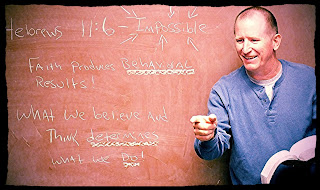 |
| Mike Hosey, An Elder |
There are many verses in the bible that command us to do pretty radical things. For one, there’s the command to love our enemies (Matthew 5:44). Another is the command to turn over your uninjured cheek if an evil person slaps you (Matthew
5:39). These kinds of commands are counterintuitive, but most of us have at least some concept regarding their usefulness or morality.
Other commands, however, take a bit of spiritual growth before we begin to see the truth behind them. For instance, consider 1 Thessalonians 5:16-18. We’re told to be thankful in all circumstances. Read it again. It says all. It also says that to do this is the will of God. Some might interpret this to mean that a person is to be thankful for every circumstance, but as other thinkers have pointed out, it doesn’t say that at all. Instead, it says to be thankful in all circumstances.
The idea is that we should maintain an attitude of gratitude, and recognize what God has done for us, and what he is doing in us. Even in our darkest hours, we can be thankful that God is shaping us into something greater (Romans 8:28-29, Colossians 1:12-14, James 1:2-3). Not having a thankful heart, on the other hand, ultimately leads to a darker heart with darker consequences (Romans 1:21).
It’s truly a radical concept, but one potential reason that God commands us to be thankful in all circumstances is so that like Paul we can be content and realize that Christ gives us power to endure all things (Philippians 4:11-13). And when we are able to endure all things, we become very dangerous to a devil bent on destruction (James 4:7). So do something radical, and always look for things God has done in you, and is doing through you.
